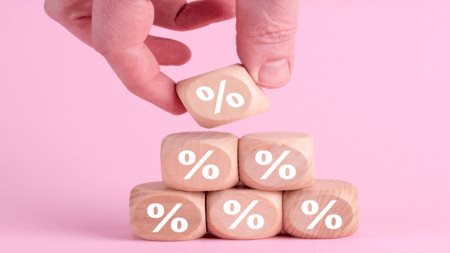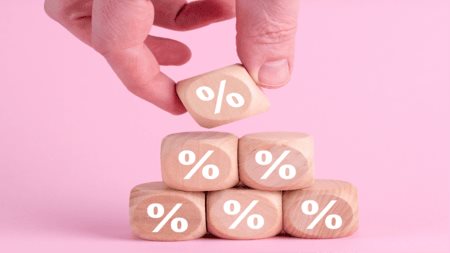It has been said many times before that buying a house is likely to be one of the biggest financial investments anyone can make in their lifetime. It makes sense then that the property which people own makes up a large portion of their wealth.
“This is especially true for many homeowners in the USA,” says Adrian Goslett, CEO of RE/MAX of Southern Africa. He says that the average American has nearly one-third of their net worth tied up in the real estate. “While not all South Africans own property, they want to. South Africa has been described as a nation which values property ownership above all other investments and sees it as an important part of their lifestyle.”
In light of this, Goslett says that understanding consumer behaviour and other factors that drive property investment is central to any property transaction for both the buyer and seller. He explains that buying behaviour is influenced largely by internal factors such as the motivation or need to acquire a property, the buyer’s knowledge of property, personality, and lifestyle requirements, all of which influence the decision process.
He refers to an excerpt from Principles of Marketing by Philip Kotler and Gary Amstrong that indicates the buyer decision process passes through five stages: need recognition; information search; evaluation of alternatives; purchase decision and post-purchase behaviour. “The process starts with the buyer recognising a need to own a property and then searching for housing information from several sources. The book mentions four groups of information sources: personal, commercial, public, and experiential sources. The estate agent would form the commercial and public source of information, for example, while personal sources would be made up of family and friends. It stands to reason that information received from friends and family could be more convincing than the formal information received from the estate agent,” says Goslett.
But, he says, even though investors may be more convinced by information received from personal sources that they trust, working with a reputable and professional estate agent who provides credible market-specific information is also a vital part of the information gathering process. “In current trading conditions, buyers need to fully understand the property market and the factors that influence it when making their purchase decision in order to secure the best deal,” Goslett says that some of the key factors which influence the market are demographics, interest rates; general economic performance, and government legislation.
Factors which influence the market
Demographics
The composition of a population in a certain area based on age, gender, and income are statistics that are often overlooked but demographics are considered to be a significant factor in determining how real estate in a certain area is priced and what types of properties are in demand.
Goslett says that any major shifts in the demographics of an area can have a huge impact on real estate trends and demand for property. “Investors,” he says, “need to ask themselves who they think will be living in the suburb in the next five years and how these changes in buyer profile could potentially affect the demand for the type of property they are looking at investing in. “Knowing that you are investing in a property that will appeal to investors or tenants for years to come will help you to narrow down the type and location of potentially desirable real estate investments,” says Goslett.
Interest rate
South Africa currently has the lowest interest rate it’s had in 38 years. Sitting at 9%, the current rate has made investing in property an attractive option for many who have been able to afford it over the last year or so. But interest rates are expected to increase in the next year or two, and may possibly reach the 12% mark again in the months ahead. Changes like this will greatly influence the ability of consumers to purchase property, as it affects the monthly repayment figure and therefore the affordability ratios.
General economic performance
The overall health of the economy and general economic performance as measured by economic indicators is another key factor that can have an effect on the value of the real estate. Goslett says that generally a sluggish economy can be linked to a sluggish real estate market, however, investors should be aware of what cycle the economy is in and mindful of the real estate industry’s sensitivity to the current economic cycle.
South Africa’s Business Confidence Index (BCI) for June, as released by SACCI improved to 86.8 in June, one index points up in May. The BCI averaged 86.9 in the first half of 2011 compared to 82.8 in the first half of 2010. While strong, SACCI says that this improvement must be viewed in the context of weak performance in the first half of 2010.
Until the global economic crisis hit South Africa in late 2008, economic growth had been steady and unprecedented. According to Statistics South Africa, GDP rose continually from 2001, meaning that from the first quarter of 1993 to the second quarter of 2008, the country enjoyed an unprecedented 62 quarters of uninterrupted economic growth. South Africa’s GDP has recovered from the dip it took during the recession and is now showing a 4,8% growth, quarter-on-quarter, for the first quarter of 2011. Unemployment was at 24% in the last quarter of 2010
Government legislation
Legislation is also another factor that can have a substantial impact on property demand and prices. Taxes such as Capital Gains Tax and transfer duties all influence the affordability of the buying and selling of property. Transfer duties have come down considerably over the last couple of years, as have Capital Gains Taxation levels.
There are many factors to consider when buying or selling property, but Goslett says being well versed and understanding the market dynamics are essential for successful investment ventures. “There can be no doubt that understanding the key factors that drive the real estate market is essential to performing a comprehensive evaluation of a potential investment and thereby ensuring you are investing wisely.”



